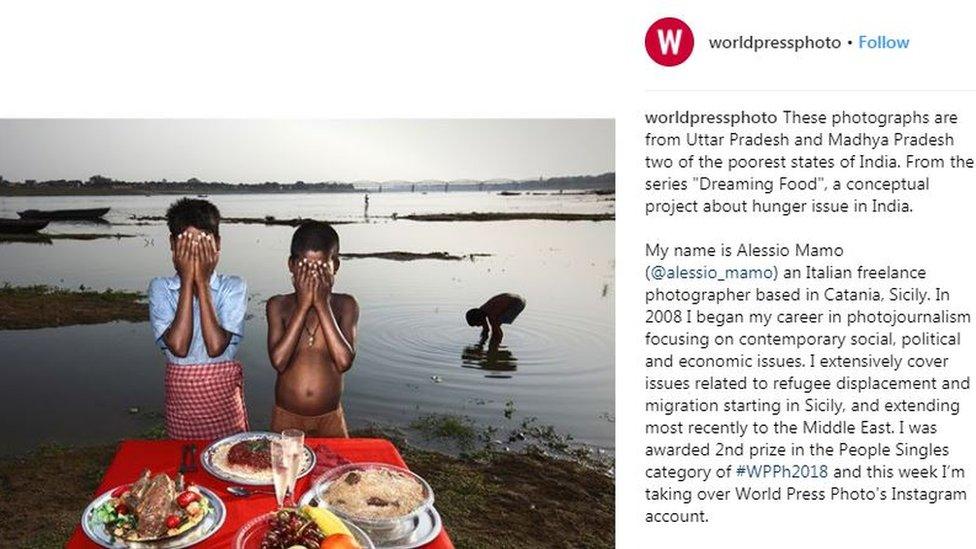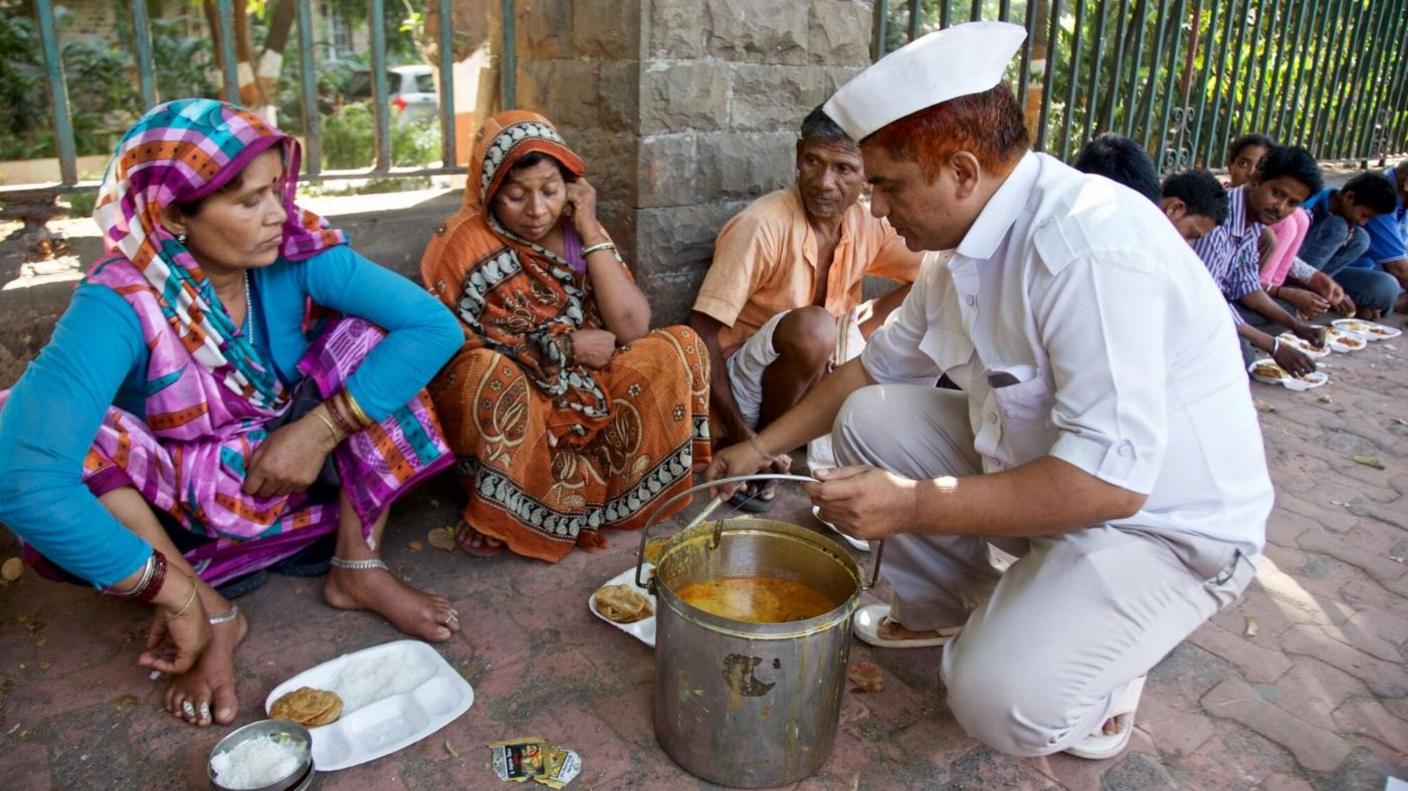Photographer hammered over India 'poverty porn' images
- Published

Photographer Alessio Mamo's series is called Dreaming Food
An Italian photographer's series on hunger in India has triggered massive backlash online, with many calling the images exploitative and "poverty porn".
Alessio Mamo posed poor Indians in front of a table with "fake food" on it and made them cover their eyes.
They were shot in two Indian states which have high rates of malnutrition.
The photos, part of a series titled Dreaming Food, were taken in 2011. They went viral after the World Press Photo Foundation shared them on Instagram.
In the caption to his series, Mr Mamo wrote that he "told people to dream about some food that they would like to find on their table". He described it as a "conceptual project about hunger issue in India".
Allow Instagram content?
This article contains content provided by Instagram. We ask for your permission before anything is loaded, as they may be using cookies and other technologies. You may want to read Meta’s Instagram cookie policy, external and privacy policy, external before accepting. To view this content choose ‘accept and continue’.
The pictures were posted on to the World Press Photo Foundation account by Mr Mamo who was given control of its Instagram account. The body regularly hands over their Instagram feed to various photographers to run.
It is unclear if the photos shared by Mr Mamo were vetted by the foundation.
Many people on social media blamed both.
Allow X content?
This article contains content provided by X. We ask for your permission before anything is loaded, as they may be using cookies and other technologies. You may want to read X’s cookie policy, external and privacy policy, external before accepting. To view this content choose ‘accept and continue’.
Allow X content?
This article contains content provided by X. We ask for your permission before anything is loaded, as they may be using cookies and other technologies. You may want to read X’s cookie policy, external and privacy policy, external before accepting. To view this content choose ‘accept and continue’.
Allow X content?
This article contains content provided by X. We ask for your permission before anything is loaded, as they may be using cookies and other technologies. You may want to read X’s cookie policy, external and privacy policy, external before accepting. To view this content choose ‘accept and continue’.
Allow X content?
This article contains content provided by X. We ask for your permission before anything is loaded, as they may be using cookies and other technologies. You may want to read X’s cookie policy, external and privacy policy, external before accepting. To view this content choose ‘accept and continue’.
Allow X content?
This article contains content provided by X. We ask for your permission before anything is loaded, as they may be using cookies and other technologies. You may want to read X’s cookie policy, external and privacy policy, external before accepting. To view this content choose ‘accept and continue’.
In the face of the outrage, the World Press Photo Foundation posted a statement online, external which said ultimately, photographers are "responsible for selecting their work".
It added that they were only given a set of "guidelines" to follow.
In an email to the BBC, Mr Mamo said the goal of his project was to urge "people in the West to think, in a provocative way, about the waste of food".
"Maybe it did not work at all, maybe I did it in the wrong way, but I worked honestly and respectfully with all the people involved," he added.
Mr Mamo also apologised for any offence his photos may have caused.
Poverty and hunger are enduring problems in India, which has the largest number of malnourished children in the world.
India has consistently performed poorly on the Global Hunger Index - last year, it was ranked 100 out of 119 developing countries on the scale.
- Published21 December 2011
- Published10 June 2016
